A former US Army Biomed now in Healthcare Technology
J.C. Newell is an Army Biomed and a trained Biomedical Equipment Technician (BMET) with over 15 years of experience in the industry. During this time, she has worked on a wide variety of equipment including Dialysis, Infusion systems, fetal monitoring systems, sterilization systems, ventilators and HVAC. She now helps build teams of Biomedical Engineers and Technicians by finding the right person for each role and company.
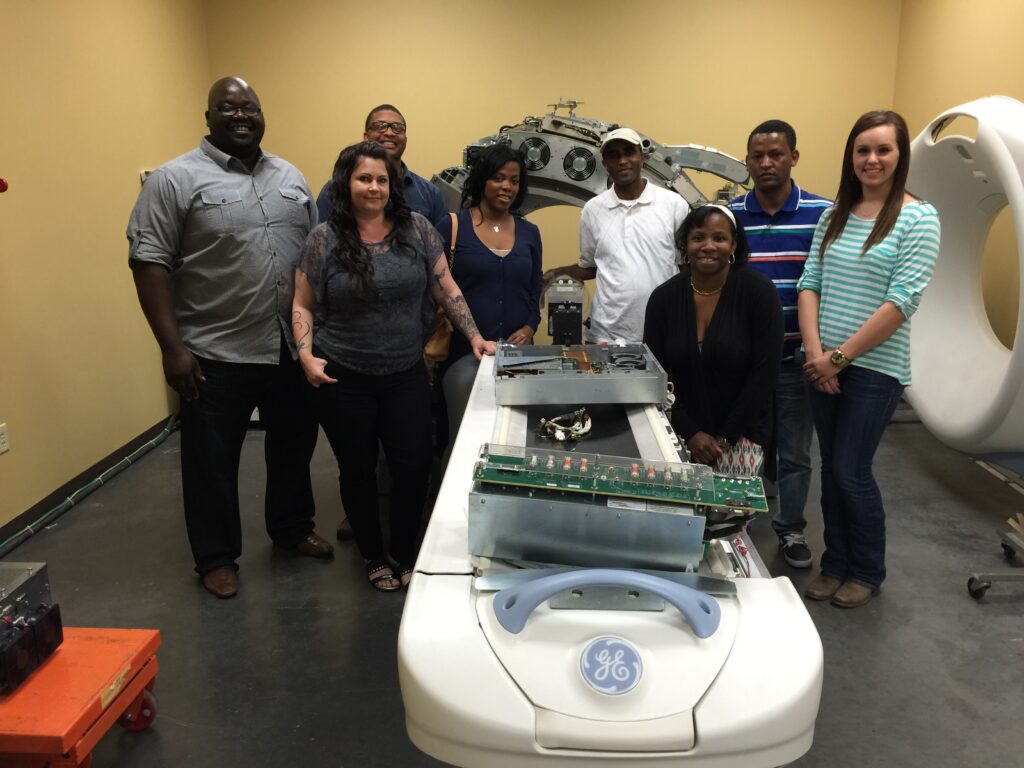

J.C. Newell a former US Army Biomed who turned disaster in to a career in Healthcare Technology
Background
Was there a family member or teacher who influenced you?
When I was young, I used to follow my dad around and tried to learn all the cool things that he was able to do.
Firstly, he was well known in our community. You would be hard pressed to find anyone who didn’t know him, and I, as a kid, thought that he was famous!
Secondly, my dad knew how to earn money. My mom would refer to him as a hustler, but to me, my dad imbued the “entrepreneurial spirit”.
Thirdly, my dad knew how to work with his hands. He worked as a welder, a carpenter, and at times, an auto mechanic/detailer. So, I rationalized that for me to be successful, I needed to be like that too. I felt that there was nothing that my dad could not do. His best advice to me was:
“Never show them all your talents, that way they can’t take advantage of you.”
Path to the Army and then to Biomed
What were your steps in life before you joined the Army and became a Biomed?
When I went to college, I joined the Air Force ROTC program. I thought that those Blues were meant for me, and I would join to become an officer and a pilot.
However, instead, I met my soon to be husband, who was in the Army ROTC program programme. He did not care for the life of an officer, so he left college and joined as an enlisted. We were married after he graduated Advanced Infantry Training. So, I left college to follow him.
As I grew older, I found that I had no career, had made no moves to live up to the imprint that my dad had made on me. I felt that I needed to make a change.
So, when my husband was stationed in Korea, and I was running an in-home day-care, I decided to join the Army. I felt that I owed it to myself to see what I could be. Not that being a mom (mother) and a wife weren’t fulfilling, but I knew that there was something more inside me.
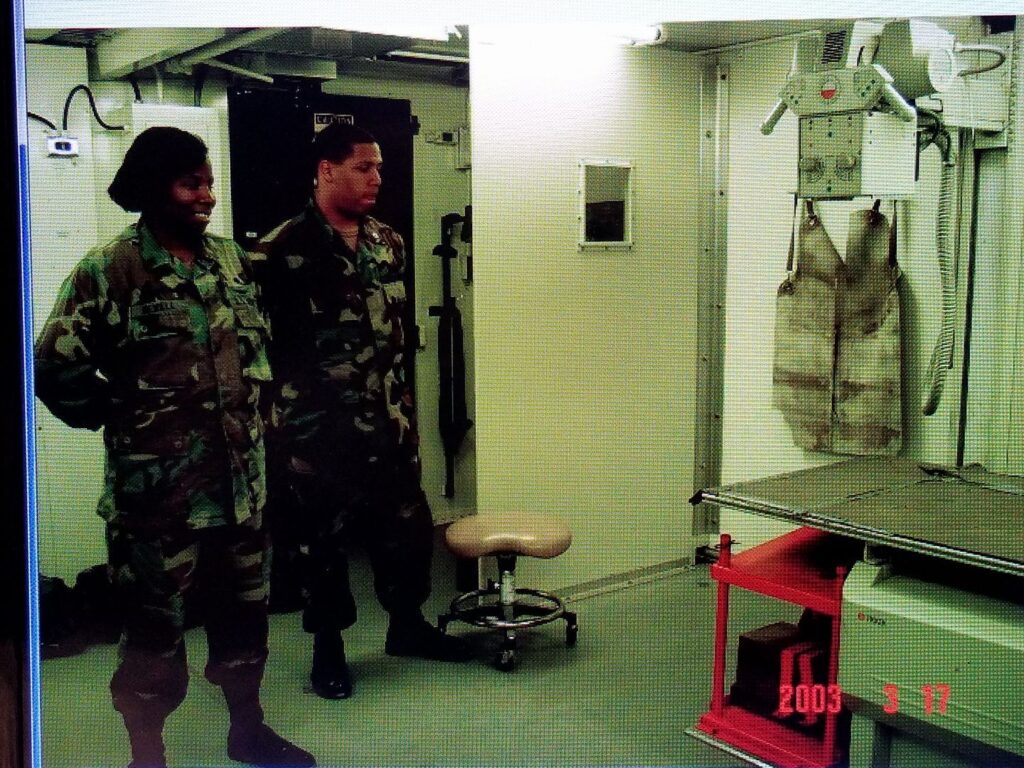

Army training
What did your Army training involve?
Joining the Army at 28 years old, I enlisted as a 68F Aircraft Electrician. I was the only female to graduate out of a beginning class of 23, and a graduating class of 9.
It was a tough programme, and the attrition rate was very high.
I had an opportunity to work on UH-60 Blackhawks, CH-47 Chinooks, and the AH-1 Cobra. I felt empowered and excited about moving and growing in the military.
What happened to change this?
Then, the unexpected happened. My husband and I had a car accident when I was assigned to Fort Campbell in Kentucky in the USA. The left side of my face was crushed in, I had a punctured lung, chest contusion, broken ribs, and an orbital floor fracture of my left eye. I was sent to Walter Reed Medical Center where they rebuilt my face and worked on my eyes. After three surgeries, I ended up with permanent double vision in my left eye and had lost my peripheral vision. Which meant no more helicopters in my future and maybe the end of a hopeful career.
How did the Army support you once you were fit to work again?
Fortunately, I had a Chain of Command who supported me and pushed for a Medical Board. I was reclassed to a 91A – Medical Equipment Repairer. I did not understand what the job was or how to make a career of it, but it was what I had to work with.
Retraining in the Army as a Biomed Equipment Technician
What were your initial thoughts going into this?
I was not as excited about working on Medical Equipment in the beginning. That was because, let’s be honest; once you have worked on a Blackhawk, there isn’t much that can compete with that!
Where were you trained?
I was then sent to Sheppard Air Force Base in Texas on the Biomedical Equipment Technicians Course. Again, I was the only female graduate of a beginning class of 27, and a graduating class of 8.
It was another tough programme with a high attrition rate.
Beginning work as a Biomed in the Army
What was your first role after training?
I was stationed at Fort Hood in Texas, where I was thrust into the lead role position over a 3-person Biomed shop.
I learned what it meant to a Biomedical Equipment Technician. In the role I had to do these three things at the same time:
maintain continuous readiness of the medical devices in a field environment;
work in a hospital and see at close hand how integral we are to patient safety;
be responsible for keeping a team educated and trained on changing technology.
It was a game changer for me. I fell in love with being a BMET and looked forward to the next challenge.
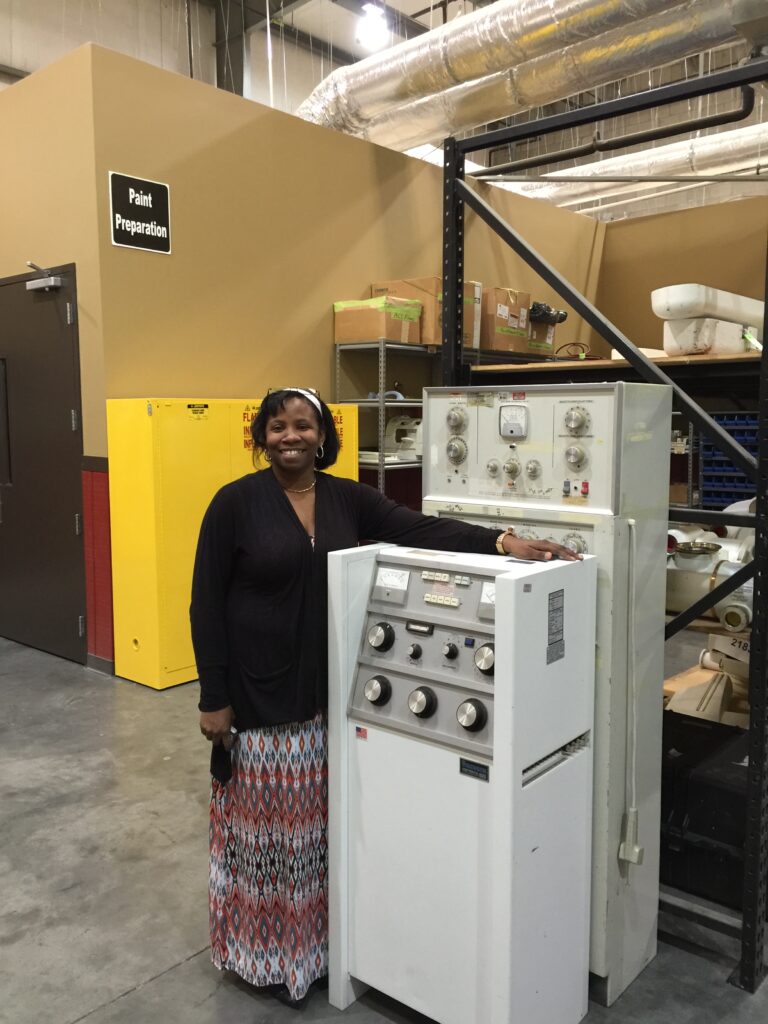

Life after the Army
What did you do when you left the Army as a Biomed?
After my time in the service, I worked and advanced in a third-party ISO (Independent Service Organisation).
I became a Biomed Team Lead/Senior Technician after 4 years of being in the civilian sector. After that, I was promoted to the Corporate Office as the Manager of Employee Education and Development.
Returning to more Biomed education after Army life
What did you decide to study?
I realised the need for me to go back to college and get my degree. I had learned to work with my hands, but I had not learned to communicate and present effectively and had not reached my earning potential.
Fast forward, I completed my AAS in Biomedical Equipment Technology, BS in Business Studies, and an MBA in Business Administration with a concentration in Healthcare Management. However, once I graduated, I found it almost impossible to be hired as a BMET.
Moving from hands on work to encouraging others to train
What caused your next career path development?
I received an opportunity that solidified my path.
I was hired to be the Programme Lead at a local Community College for the Biomedical Equipment Technology Programme. In that position, I was able to show our field to a wide variety of students, at various points in their lives.
The students ranged from recent high school graduates to veterans, and even those nearing retirement age. I showed them that a Biomedical Equipment Technician’s life was exciting, versatile, and financially lucrative. I introduced them to the AAMI and MD Expo Conferences, so that they can see what our industry demands. They came back, each time, motivated and ready to learn more.
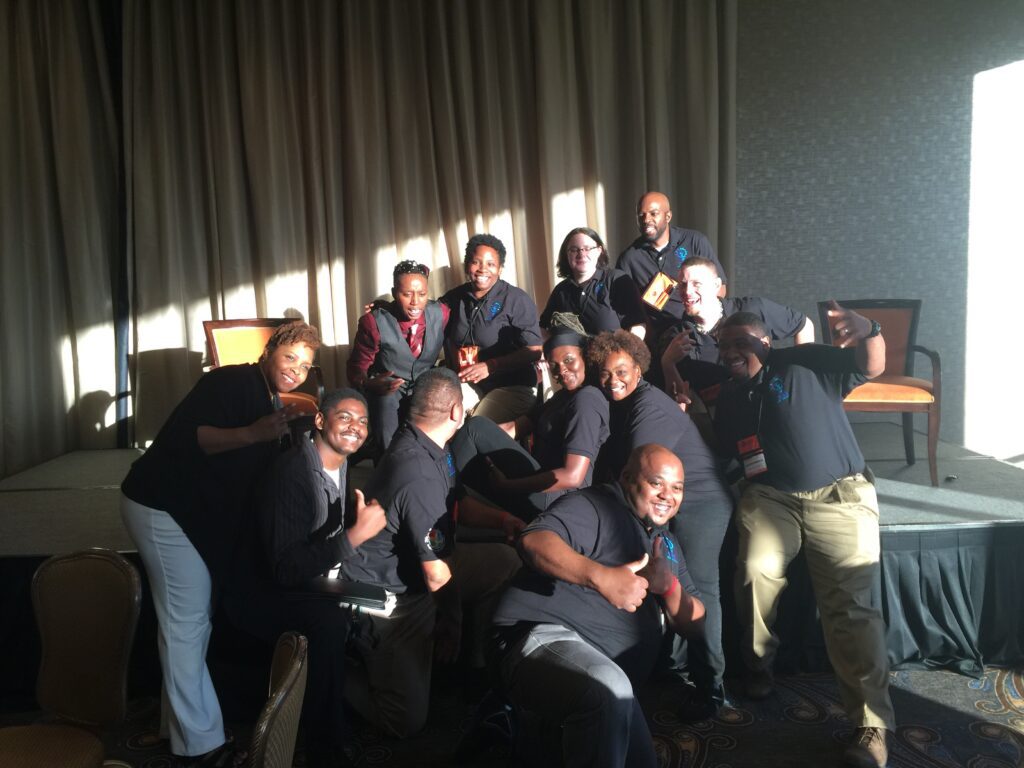

Placing graduates in jobs as Biomed Technicians
What did you do to help them once your students had completed the course?
I reached out to my associates and friends in the industry to help the new graduates find a good place to start their careers. They have all continued to advance.
Who else did you help?
I expanded my support of the entry level technicians, by assisting any student, from any BMET Programme in finding a position. Plus, I didn’t charge them anything for this.
I felt that they needed an advocate, someone to speak on their behalf to assist them in standing out above all the other entry level candidates. Furthermore, I continued to assist them and any other BMET who needed assistance in finding a position by:
writing a resume/CV for them
understanding and explaining their contracts
or whatever.
New Biomed (civilian and army)
What are your key pieces of advice for a Biomed starting their first job?
It is so important for an entry level technician or engineer to understand that they must do the following five things.
Relocation
Talk to your family about the possibility of relocating for a position. The new grad may have to move to another state for an open position. They may also have to leave their family behind to get acclimated to the position and get things ready for the family.
Travel
Be mindful that some positions require a lot of travel or after-hours work. Make sure that your family understands those demands prior to you accepting a position.
Growth
Do not be so quick to chase the money. Be mindful of those things that you will need to be successful in your next role. Do they offer training, education reimbursement, paid leave, and is there an opportunity for growth? Ensure that you know these things prior to accepting the position.
Skillset
Be careful not to pigeonhole yourself. Do not accept a position that does not enhance your skillset.
For example
If you take a position as a single task technician and stay there for three years. Then when you go to apply as a BMET, please know that you have no actual experience in a hospital environment or working on any other devices, other than the single type you worked on. You will be reviewed as an entry level technician, even though you have three years of experience.
Work record
Keep a record of your work. Get a thumb drive or other storage device and save your equipment manuals, training certificates, job acceptance letters, etc. You may need to be very specific about equipment that you have worked on when interviewing with a hiring manager and this record will be very useful.
Director
What was your next move in your Biomed journey?
After leaving the Technical College, I was hired to work at a County Hospital where I moved from a Contracts Coordinator to Director of the Healthcare Technology Management Department.
It was the most challenging time in my life and, at the same time, the most rewarding experience of my life.
Especially, in the time of COVID-19, where there was so much death and such a strain on Nursing and Support Staff at every hospital. We had to do whatever it took to keep the equipment running, patients safe, and our team members supported.
I had never been so proud of our industry, as I was during that time. Our BMETs worked around the clock, they were professional, supportive, and resilient. We held it down, kept the equipment running, and stayed motivated.
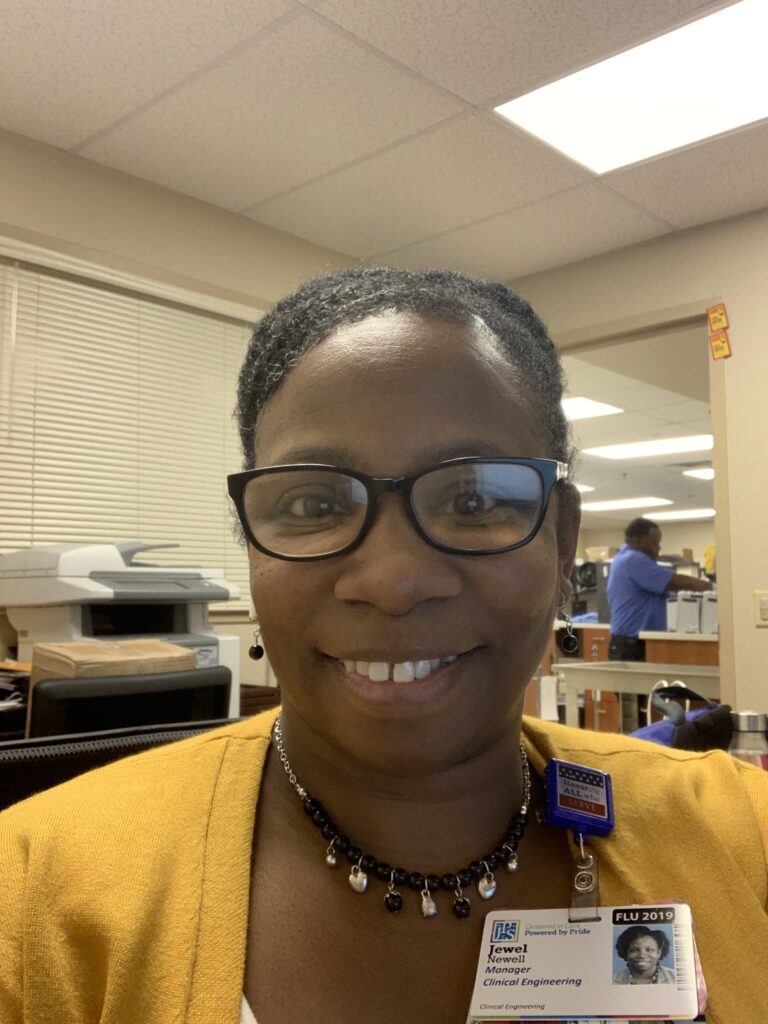

Entrepreneurial Spirit
What brought about your move into recruitment?
In 2022 the programme was outsourced, and I had a decision to make. I could either find another position in another organisation, or I could tap into the same entrepreneurial spirit that my dad had. So, I decided to start Newell Recruiting and Consulting, LLC.
Why was this an easy and obvious decision to make?
I have been assisting Biomeds since 2013, and I can say that it is something that I truly enjoy. So, it was an obvious time to start my own business.
Biomedical Engineering
Would you advise this as a career?
I would not change a single thing about my BMET career. I still have the same love, passion, and excitement about the field that I had when I started. Because of that, I will continue to support it for as long as I possibly can.
Applying for a Biomed postition
What advice would you give to anyone applying for a Biomed position in the United States?
As a recruiter, I encourage anyone applying for Biomed roles to have the following five things.
One: Resume/CV
Ensure that your resume/CV contains these four areas:
Objective – In 3 sentences describe who you are and what you can bring to the organisation.
Skills Summary (bulleted) – List of knowledge, skills, and abilities, especially those that are in the job description for the position you are applying. Do not include statements, such as, “Great Customer Service” or “Knowledgeable of Microsoft Office”.
Education – List your most recent education first and the year it was completed. You may place additional training below Education, but all should be listed in the same area.
Do not list your hobbies, as that should be discussed in the interview and only if asked.
No More than 10 Years of Work History – Explain any gaps or lapses in time – Do not list positions held for less than 1 year, unless they relate to the position you are applying for.
Two: References Upon Request
Never add references to a resume/CV. Remember your references may not be prepared for multiple people contacting them about you. Also, try not to list references that cannot speak about your work ability or professionalism.
Three: Cover Letter
This is a unique opportunity for you to let the hiring manager know more about your skillset and what you feel that you can bring to enhance the organisation. You may discuss how your military training or previous life experiences have prepared you for the current role you are applying for. Be sure that your resume/CV and cover letter are consistent with the job description for the role you are applying for.
Four: Certificates
Please try to have copies of any training certificates that you have. This gives validity to your resume/CV but be mindful that the hiring manager may check the validity of your certificates.
Five: Clean Social Media Presence
Although not required by most organisations, be mindful of your social media presence and comments/actions you may display. Organisations may ask for your Facebook, LinkedIn, Instagram, and other account names for review.
Further reading
Other Biomedical Engineers share their experience and advice


Responses